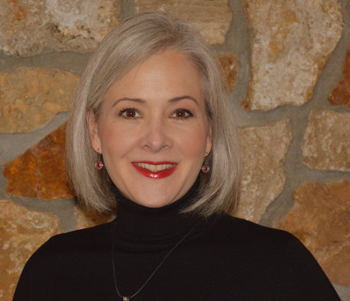
Nvair Beylerian
Anoush Krikorian was interviewed by the filmmaker J. Michael Hagopian over 10 years ago about his experiences as a survivor of the Armenian Genocide. Now, Krikorian’s granddaughter is working to make sure his voice, and the voices of over 400 other survivors, are preserved in one of USC Shoah Foundation’s newest collections.
Nvair Beylerian, a former television producer and UNICEF communication consultant, said she was fortunate to be close to her grandparents growing up. Both were orphaned by the Armenian Genocide in 1915, and though they immigrated to the United States, they kept their culture and language alive for their children and grandchildren. Beylerian has even recorded CDs of Armenian children’s music – songs her grandparents taught her from their villages.
When Hagopian asked to interview Krikorian in the early 2000s for his Armenian Genocide testimony project (at 400 testimonies, Hagopian’s is the largest collection of filmed Armenian survivor interviews in the world), Krikorian initially said no. It was Beylerian who convinced him to do it.
“I said, ‘This is important. Your voice needs to be heard; even at your advanced age it’s still valuable and still relevant,’” Beylerian said.
This summer, Beylerian read an article in an Armenian newspaper about USC Shoah Foundation’s Oct. 3 Ambassadors for Humanity Gala honoring George Clooney, and called Sylvia Moskovitz, USC Shoah Foundation director of development, to learn more about it.
Moskovitz told her about the fundraising efforts currently underway to integrate Hagopian’s collection into USC Shoah Foundation’s Visual History Archive, which currently contains testimonies of 52,000 Holocaust survivors and 65 Rwandan Tutsi Genocide survivors. The goal is to complete fundraising by 2015, the 100th anniversary of the Armenian Genocide.
After attending the Ambassadors for Humanity Gala in New York City and learning about USC Shoah Foundation’s mission to preserve the testimonies and distribute them around the world, Beylerian knew she wanted to help the Armenian genocide collection project in a big way.
So, she hosted a parlor meeting at her home in New Jersey, attended by Armenian philanthropists and educators, to start spreading the word on the East Coast about USC Shoah Foundation and the Armenian collection project.
“Those people that attended were really quite excited, and they wanted to reach out to other communities,” Beylerian said. Some are planning meetings of their own in Boston and Washington, D.C., and Beylerian hopes to plan a larger event in New York City in 2014.
Beylerian said the collection is important to the Armenian community because all Armenians have been touched by the genocide.
“One thing that unites all Armenians is genocide recognition and awareness,” she said.
While her children were lucky enough to spend time with their great-grandfather, Beylerian said many of their peers have never met a survivor. The testimonies are one way to keep their memories alive.
“I feel that it is a privilege to meet anyone who has survived that kind of hardship,” Beylerian said. “It’s our responsibility for their suffering to not be forgotten, to not have been in vain, and to prevent it for future generations.”